This time of year often brings to mind thoughts of excursions to cottage country, which is far from a new phenomenon. For generations, people who have had the means have looked to “escape” the urban city for relaxation and vacation.
Tourist camps and cottages in Haliburton, Muskoka and countless other areas ebbed and flowed with seasonal cottagers and vacationers – and still do today.
But there was a time, not-so-long-ago, when WE were cottage country for wealthy Torontonians too. Steamers brought visitors and vacationers, gliding across the shining waters of Lake Ontario, in a scene that conjures romantic images of yesteryear.
On May 24, 1879, the Toronto Park Association opened a 75-acre pleasure grounds and park at Lorne Park, here within modern Mississauga. A large wharf, picnic pavilion and refreshment lounge enticed visitors to the new resort, and three “magnificent steamers”, the Armenia, Empress of India and Picton, brought visitors from Toronto to Lorne Park for the day. Other steamers that regularly “called” at Lorne Park included the Greyhound, Merritt, Quinte and Rothesay.
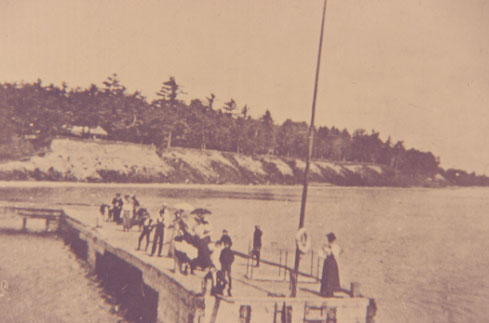
At the time, park amenities included a parlour, restaurant, Ladies’ parlour, bowling alley, billiards, shooting gallery, baseball targets, merry-go-rounds, and a dancing pavilion. A wonderful history of Lorne Park (the area is now Lorne Park Estates) can be found in “A Village Within a City: The Story of Lorne Park Estates” by the Lorne Park Estates Historical Committee (1980).
The steamer wharf itself extended out into Lake Ontario near the foot of Chaucer Avenue. It was made of wooden cribs filled with stone. On June 6, 1903 a section of the wharf collapsed, and people waiting to board a steamer were tossed into the lake. Thankfully all survived, but that was the end of the wharf, and of steamer service at Lorne Park.
But what of the ships themselves?
The Armenia was a steam-driven propeller that was launched in Chatham in 1873. She was engaged in both passenger and mail service. The Armenia was operated by the Malcolmson Brothers out of Hamilton. In 1896 she was sold and converted to a lumber barge and was scrapped at Montreal in 1908.
The Empress of India was launched in 1876 by E.W. Rathbun & Company at Deseronto. The Empress was a sidewheel paddle steamer, and she was the first steamer to dock at the wharf in Lorne Park for the opening of the Toronto Park pleasure grounds on May 24, 1879.
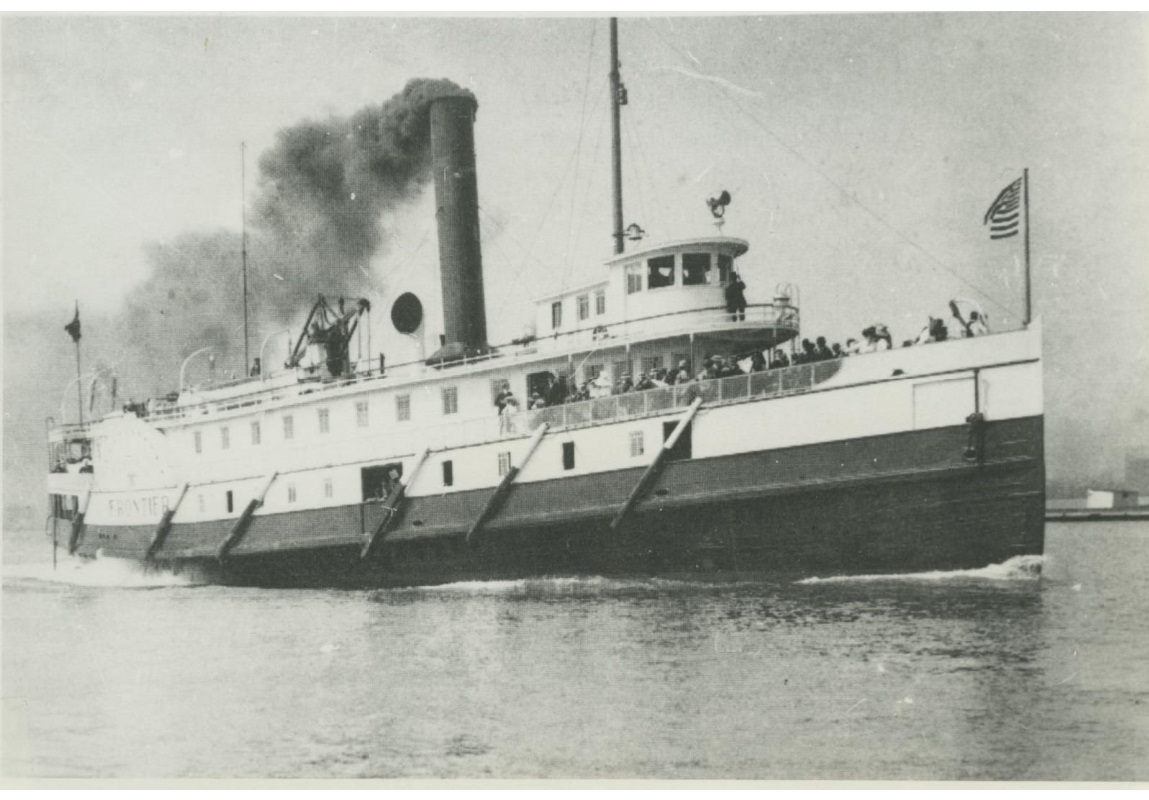
A year earlier, on May 31, 1878, the Empress capsized near Galt on the Grand River when the rudder jammed and the steamer was swept over a mill damn, drowning 8 passengers. The Empress was repaired and was back in service in 1879 in time for the opening of the park. Rebuilt again in 1886 and 1891, she ran passenger service between Niagara and Toronto.
The Empress was lengthened in 1899 and renamed the Argyle. In her later years, the aging steamer changed hands and names several times, sailing as the Grimsby and Frontier before being abandoned and sinking near Chatham in 1916.
The Picton was a small sidewheel steamer that was launched at Picton in 1870. Owned by the Bay of Quinte and St. Lawrence Navigation Company, in 1877 she operated the Toronto to Port Dalhousie route. On September 22, 1882, the Picton was driven ashore and wrecked on Lake Erie, near Rondeau.
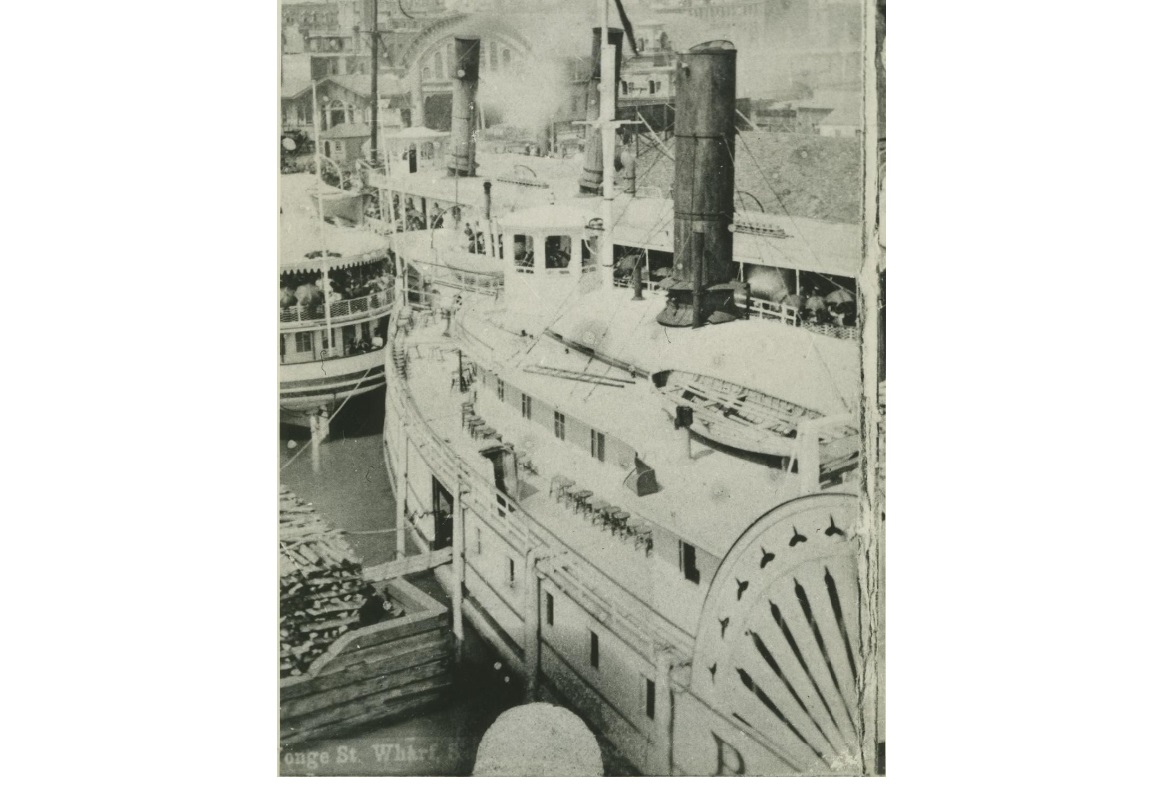
The Greyhound was a passenger steamer that was built at Hamilton in 1888 for the Gooderham & Worts Brewing Company. In 1899 she was enlarged and renamed the Lincoln. In 1904 she was sold and transferred to Lake Erie, where she ran passenger service between Windsor to Pelee Island. On April 6, 1905 she caught fire and burned to the deck line at the dock at Amherstburg.
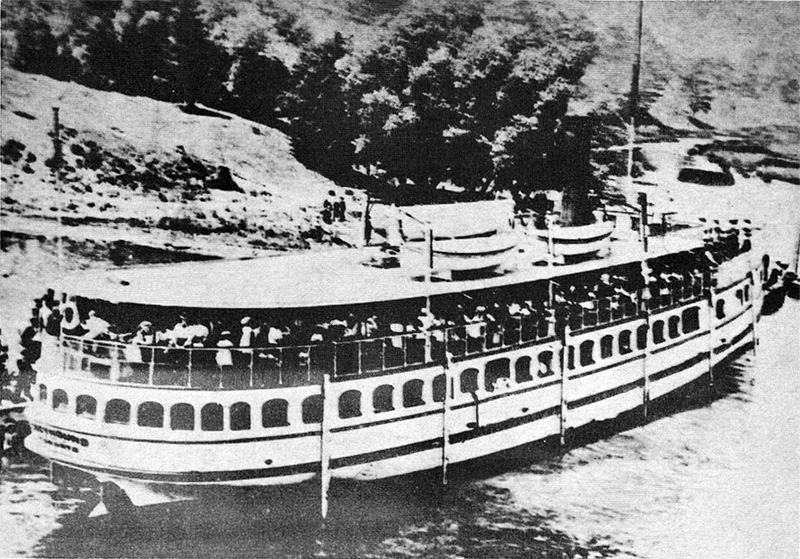
The W.H. Merritt was a sidewheel steamer that was built in St. Catharines in 1884 and operated between Oshawa and Hamilton. As passenger traffic decreased and the vessel aged, she was converted to a timber barge, and was lost on Lake Huron in 1917.
The Quinte was a sidewheel steamer that was built at Quebec in 1871 by the Beauharnois Steam Navigation Company. She was originally christened as the Beauharnois, and was renamed Quinte in 1882. On October 23, 1889, she caught fire, burned and sank near Deseronto, with a loss of 4 lives.
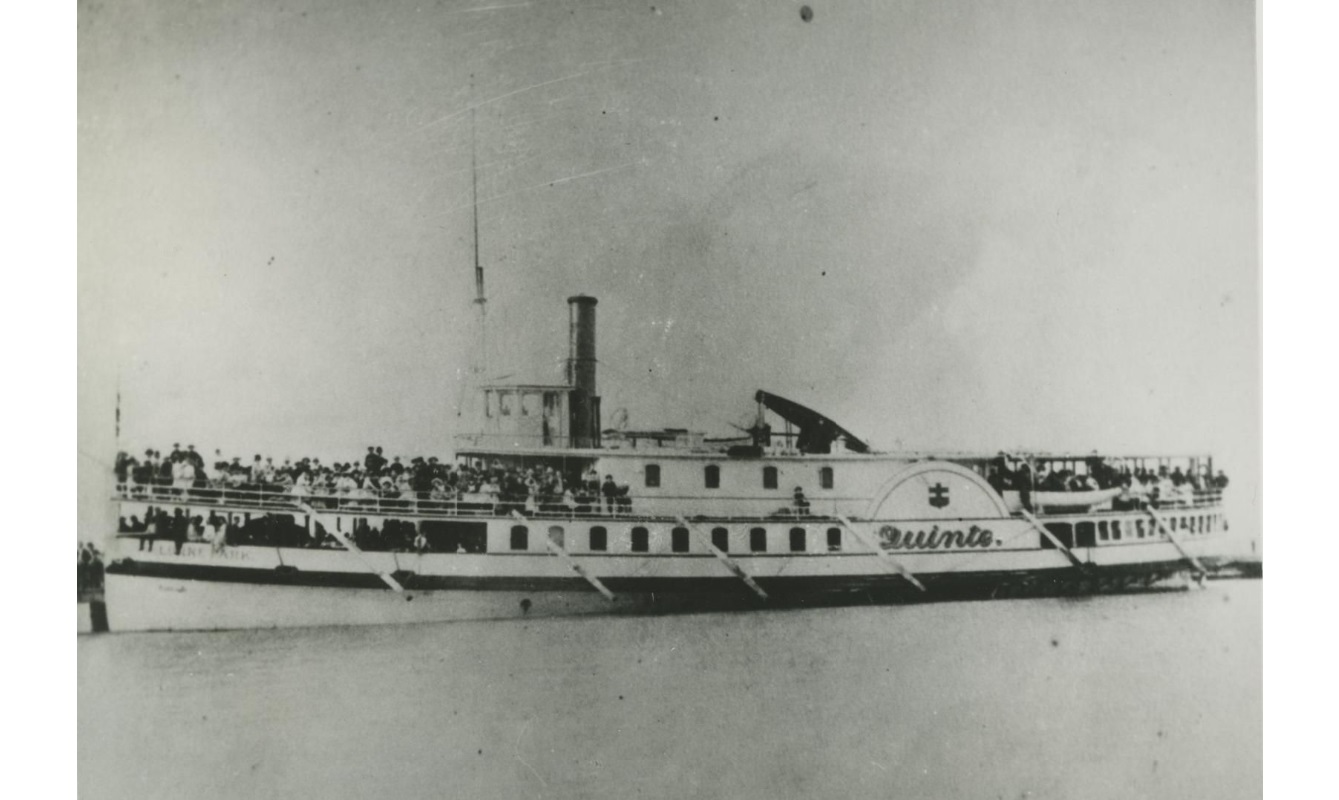
The Rothesay, perhaps the best known of the steamers that traversed between Toronto and Niagara, was built in 1867 in New Brunswick. She was a large and well-appointed sidewheel steamer. She was brought to Prescott in 1877 to traverse the Thousand Islands for pleasure cruises.
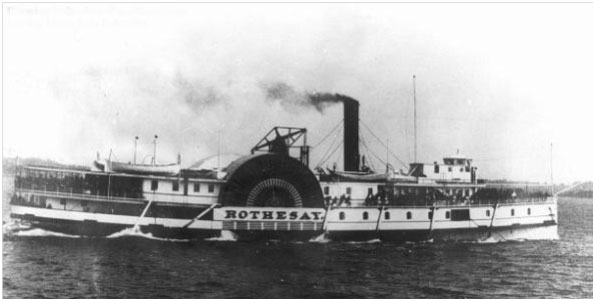
She was transferred to Toronto in 1878, and frequently called at Lorne Park. By 1883 she returned to plying the waters of the Thousand Islands between Prescott and Ogdensburg.
On September 12, 1899 the Rothesay collided with the tug Myra near Prescott. The Rothesay was holed, and partially sank near the beach at Prescott. Deemed a complete loss, she was abandoned. The Rothesay wreck was dynamited in 1901 as the hulk was seen as a danger to navigation. The wreck is now a popular dive site.
There were other steamers as well, including the Carmona, Chicora, Manitoba, Passport and the White Star, which stopped at Lorne Park.
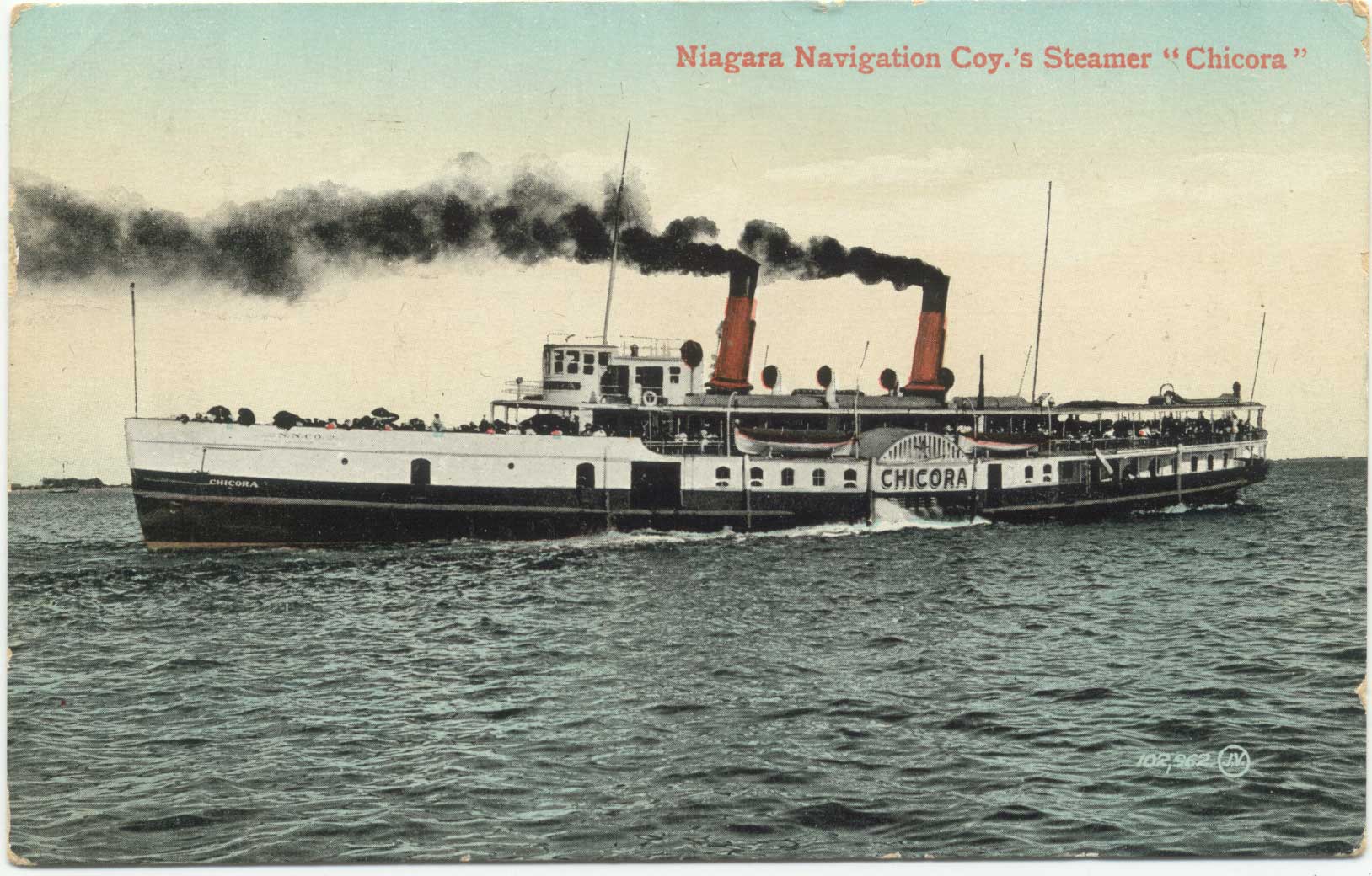
The images of the steamers, and of the wharf at Lorne Park, are but fading memories now. Today the RMS Segwun in Gravenhurst recalls the grand era of the steamships, which were once a common site on the Great Lakes … and briefly here in Mississauga.



Comments are closed.